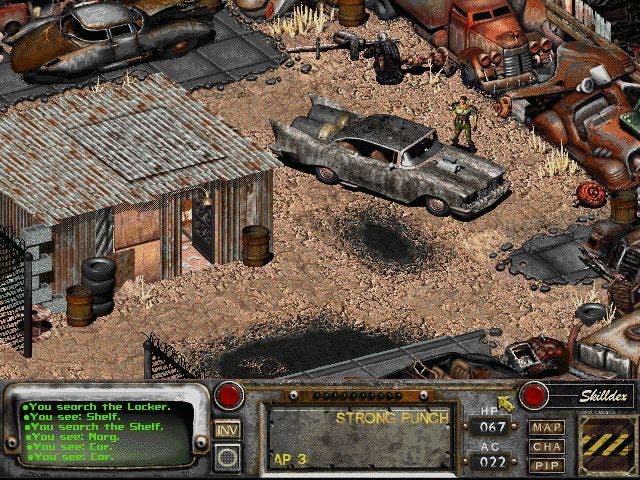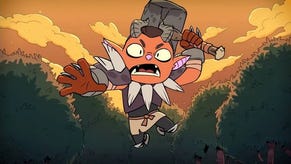Fallout Retrospective
How the original games caused a quiet revolution.
"I think that the one thing that Fallout did better than almost any game that I can remember was that ineffable quality called 'heart'," says Bennie. "How many games out there gave you a scraggly, scrappy, and quietly loyal sidekick named Dogmeat? When you met Richard Dean Anderson's Killian and began to unlock the secrets of the world, how many people ached for the people in that world? How did you feel in the first moment when you realised the Master wasn't some generic ranting villain like Ultima's Guardian, but had thoroughly good intentions that sent him down one of the darkest imaginable roads to a personal hell, and didn't deserve his fate?"
And that is the truly, enduringly great thing about Fallout - it does with text and dialogue and sheer atmosphere what it could not do with pretty pixels. Like many RPGs of the time, technical limitations fed a necessity for good writing. "Chris Taylor's writing for the original Fallout, while not the most polished in the industry, did something remarkable," Bennie says. "It made you care, deeply, about people who were only a few moving pixels and sentences of expository text. And if that's not good writing, I don't know what is."
The more you put into Fallout, the more you get out of it. Originally the game constrained you with a time limit, but this was soon fixed with a patch when Interplay realised that players were desperate to get everything they could out the game, see everything that the wasteland had hidden away. Fallout 2, released just a year later in 1998, offered an even bigger and more populated wasteland, and painted a picture of a new power struggle going on in the wilderness 80 years after the events of the first game. Though its tone and practically everything about the game engine stayed exactly the same, the themes were more adult; drug addiction and the sex industry were much more obvious here than in the original game, and perhaps less subtly disturbing as a result.

Fallout 2's open-world was as punishing as it was rewarding. Though it was never easy to survive in Fallout 1's wastes, it took even more hours of scavenging and scrounging in Fallout 2 before the plot really kicked in and the player was able to take command of the wastes. But Fallout's chilling realism would suffer if the games were easy. Their portrayal of a forsaken post-apocalyptic world makes no compromises for the player's comfort, in terms of gameplay or emotionally.
Fallout 1 and 2 are bastions of the Western RPG, for sure - the combat and SPECIAL systems were inspired, and far from its only innovations - but what they really brought to the medium was an illustration of how atmosphere and writing and soul can change how games move us. Fallout and Fallout 2's world, often heart-rending in its desolation, well-written and ironic, is still one of the most believable and moving in videogames. They are games of fundamental importance to anybody who cares about how good writing can transform interactive experiences, and that's one of the reasons that they've proven so enduring; because Fallout's impact wasn't dependent on its technology, you can play them now and experience the exact same emotional impact that they had when they were first written. And you should.
Alternatively, you could play Fallout 3, which is due out for PS3, 360 and PC on 31st October. Our review of the game goes live tonight at midnight EST, which is 4am GMT on Tuesday morning.


.jpg?width=291&height=164&fit=crop&quality=80&format=jpg&auto=webp)

_Rwmp6uD.jpg?width=291&height=164&fit=crop&quality=80&format=jpg&auto=webp)



.png?width=291&height=164&fit=crop&quality=80&format=jpg&auto=webp)